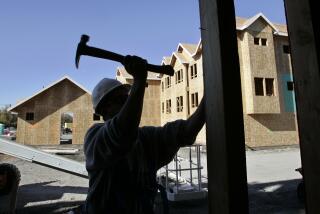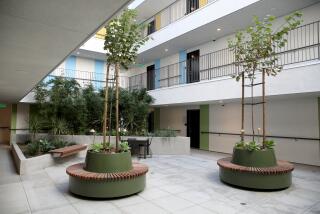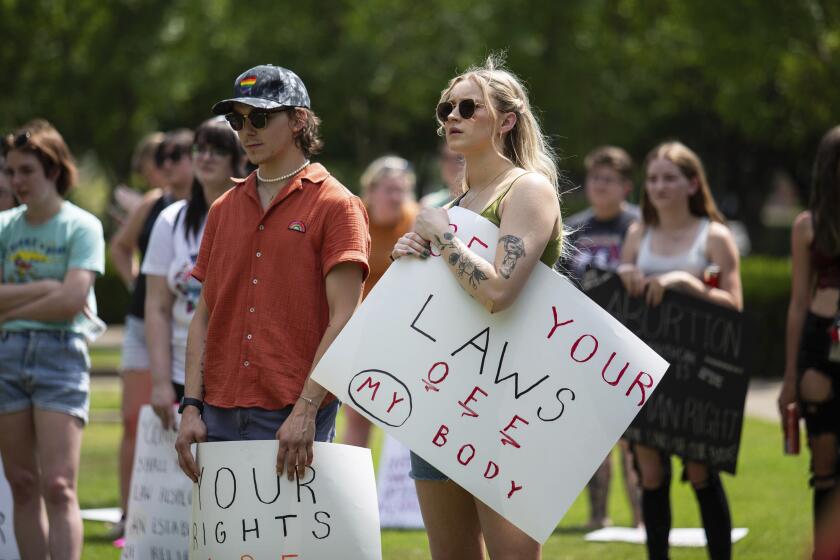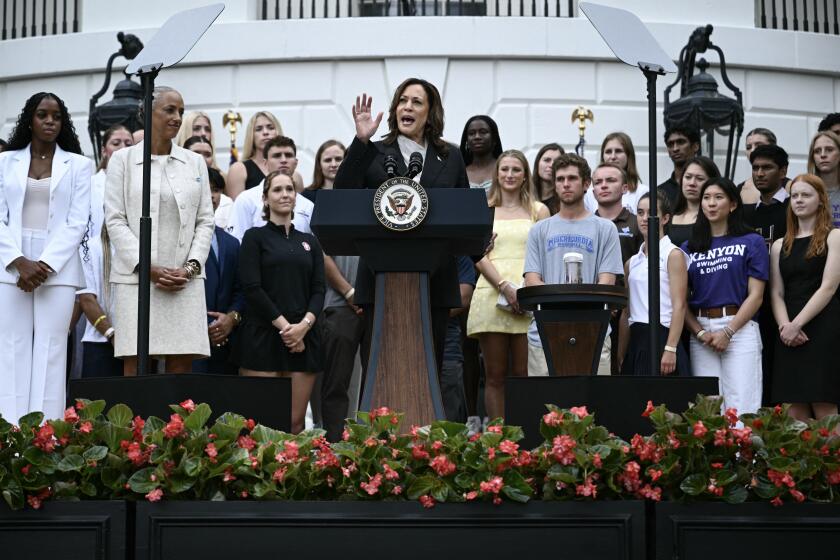Editorial: Don’t let California’s housing crisis get worse. Lawmakers need to act on these bills
California’s housing crisis is eroding the quality of life in the Golden State.
Rising rents and house prices are forcing Californians to spend more of their paychecks to keep a roof over their heads. Among renters, 1 in 3 pays more than half his income to his landlord, leaving little money for food, transportation and other essentials, much less for savings. Too many residents are one unexpected expense or rent increase away from homelessness.
Homeownership — one of the most important ways Americans build wealth — is falling out of reach for many Californians. Only half of the households in the state own their homes, among the lowest rates in the country and the lowest rate in California since the 1940s.
To find affordable housing, workers often move to far-flung suburbs from which they commute hours each day, making traffic worse and exacerbating air pollution and greenhouse gas emissions. Employers complain that high housing costs make it hard to hire and retain skilled workers. That hurts the state’s economy and has led some companies to move to states where their workers can more easily buy homes.
These bills alone won’t solve the state’s housing crisis. But they are a good first step in reversing decades of bad decision making.
The cause of the crisis? California’s traditionally high housing costs have been worsened by a decades-long failure to build enough housing to keep up with population growth. For example, the state projected it would need 1.5 million new homes between 2003 and 2014, yet fewer than half of those homes were built. California needs to build, build, build — both market-rate and affordable homes if it is to end the housing crisis.
Lawmakers finally have taken this to heart. There were more than 130 housing-related bills introduced this year. Now in the final weeks of the session, there are a handful of critical bills that must pass.
SB 35: Local governments often have thrown up roadblocks to building housing. Though they are sometimes justified, the overall effect of measures to combat sprawl, to mitigate traffic and to ensure adequate infrastructure is in place — in combination with unnecessary red tape and NIMBYism — has been to stymie or shrink badly needed housing development.
Sen. Scott Wiener’s (D-San Francisco) SB 35 would put some teeth behind the state’s “fair share” housing law that requires cities to plan for enough market-rate and affordable housing. The bill would require cities that have fallen behind on their housing construction goals to streamline the approval of certain apartment or condo projects. Developments that comply with existing land-use rules and that include affordable units could bypass the often lengthy and sometimes unnecessary environmental reviews and City Council votes. The idea is to make it easier and faster to build new homes in communities that have failed to approve the housing needed to meet population growth.
SB 2: While California should let the real estate industry create more luxury and middle-income housing, the reality is that the market alone will not build housing for the neediest Californians. There needs to be subsidized housing.
A decade ago, California communities collected more than $1 billion a year in property taxes to spend on low- and moderate-income housing. That affordable housing money disappeared after Gov. Jerry Brown and legislators eliminated the state’s redevelopment agencies in 2011 to help balance the budget. SB 2 by Sen. Toni Atkins (D-San Diego) would restore a fraction of that annual funding by imposing a $75 fee on mortgage refinances and other real estate transactions, except for property sales.
That fee would raise about $250 million a year, the bulk of which would help finance low-income and homeless housing. The rest would provide assistance for homebuyers and funding for farmworker housing, and would help cities plan for housing development.
Some lawmakers have balked at the bill because it would levy a new fee. But it is a relatively small charge that will help California address the enormous need for housing for the state’s most vulnerable residents.
SB 3: This compromise bill by Sen. Jim Beall (D-San Jose) would put a $4-billion bond measure on the June 2018 ballot. If approved by voters, it would help fund the construction of new affordable rental housing and would provide low-interest loans to veterans buying homes. A $4-billion bond is a lot less than the $6 billion to $9 billion that Treasurer John Chiang and Assembly Speaker Anthony Rendon had been pushing for, but it’s more financially prudent, especially as California voters are likely to consider additional bonds next year for parks, water infrastructure and voting systems.
These bills alone won’t solve the state’s housing crisis. But they are a good first step in reversing decades of bad decision making.
Follow the Opinion section on Twitter @latimesopinion and Facebook
More to Read
A cure for the common opinion
Get thought-provoking perspectives with our weekly newsletter.
You may occasionally receive promotional content from the Los Angeles Times.






